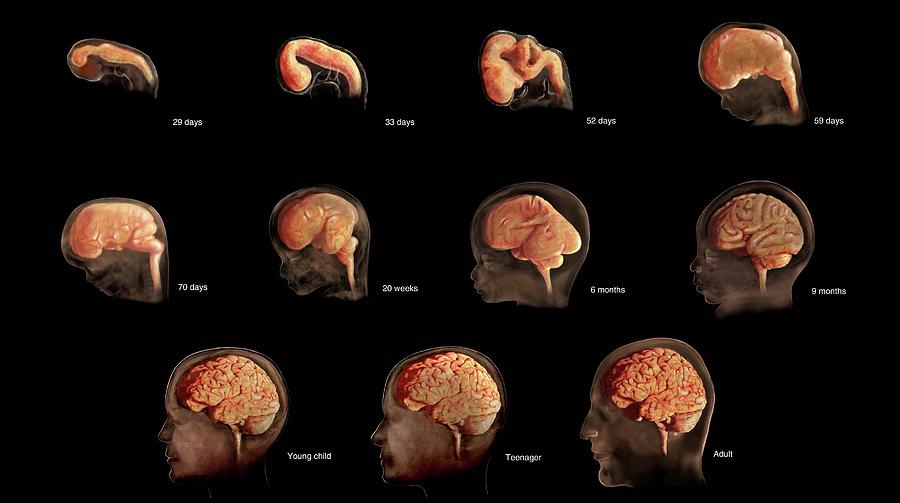
As a new mom, one of the questions you may be wondering about is when your baby will have a fully developed brain. The brain is a critical organ that controls all of our body’s functions, including our thoughts, emotions, and movements.
Table of Contents
Brain Development During Pregnancy
Did you know that your baby’s brain begins to develop just three weeks after conception? That’s right! By the time you find out you’re pregnant, your baby’s brain has already started forming. During pregnancy, the brain grows rapidly and forms trillions of connections, known as synapses.
The first trimester is a crucial time for brain development. During this time, the brain’s major structures begin to form, and neurons start to migrate to their proper locations. By the end of the first trimester, your baby’s brain will have formed all of its major structures, including the cerebral cortex, brainstem, and cerebellum.
Brain Development After Birth
Although the brain has formed all of its major structures by the end of the first trimester, it continues to grow and develop after birth. The first few years of life are a critical time for brain development. During this time, the brain forms new connections rapidly and continues to prune unused connections.
By age three, a child’s brain will have reached about 80% of its adult size. However, the brain continues to develop throughout childhood and adolescence. By the time a person reaches their mid-20s, their brain will have reached its full size and completed most of its development.
Factors That Affect Brain Development
Several factors can affect a baby’s brain development, including genetics, nutrition, and environmental factors. Exposure to toxins, such as alcohol and tobacco, can also have a significant impact on brain development.
It’s essential to provide your baby with a healthy environment to promote optimal brain development. This includes providing proper nutrition, a safe and stimulating environment, and plenty of love and attention.
When Does A Baby Have A Fully Developed Brain?
While the brain continues to develop throughout childhood and adolescence, it’s considered to be fully developed by a person’s mid-20s. However, this doesn’t mean that a baby’s brain isn’t functional or capable of learning and growing.
Babies are born with the ability to learn and adapt to their environment. They begin to develop language skills from an early age, and their brains are capable of processing complex information, such as facial expressions and emotions.
Conclusion
A baby’s brain begins to develop just three weeks after conception and continues to grow and develop throughout childhood and adolescence. While the brain is considered fully developed by a person’s mid-20s, babies are born with the ability to learn and adapt to their environment. It’s essential to provide your baby with a healthy environment to promote optimal brain development.
Frequently Asked Questions
Q: Can a baby’s brain development be delayed?
A: Yes, several factors can delay a baby’s brain development, including genetics, nutrition, and environmental factors. Exposure to toxins, such as alcohol and tobacco, can also have a significant impact on brain development.
Q: Can you speed up a baby’s brain development?
A: While you can’t speed up a baby’s brain development, you can provide a healthy environment that promotes optimal brain development. This includes providing proper nutrition, a safe and stimulating environment, and plenty of love and attention.
Q: Are there any activities that can promote brain development in babies?
A: Yes, several activities can promote brain development in babies, including reading to your baby, playing music, and engaging in interactive play.
Q: Can a baby’s brain development be improved after birth?
A: Yes, a baby’s brain development can be improved after birth by providing a healthy environment that promotes optimal brain development. This includes providing proper nutrition, a safe and stimulating environment, and plenty of love and attention.
Q: At what age is a baby’s brain fully developed?
A: While the brain continues to develop throughout childhood and adolescence, it’s considered to be fully developed by a person’s mid-20s.
